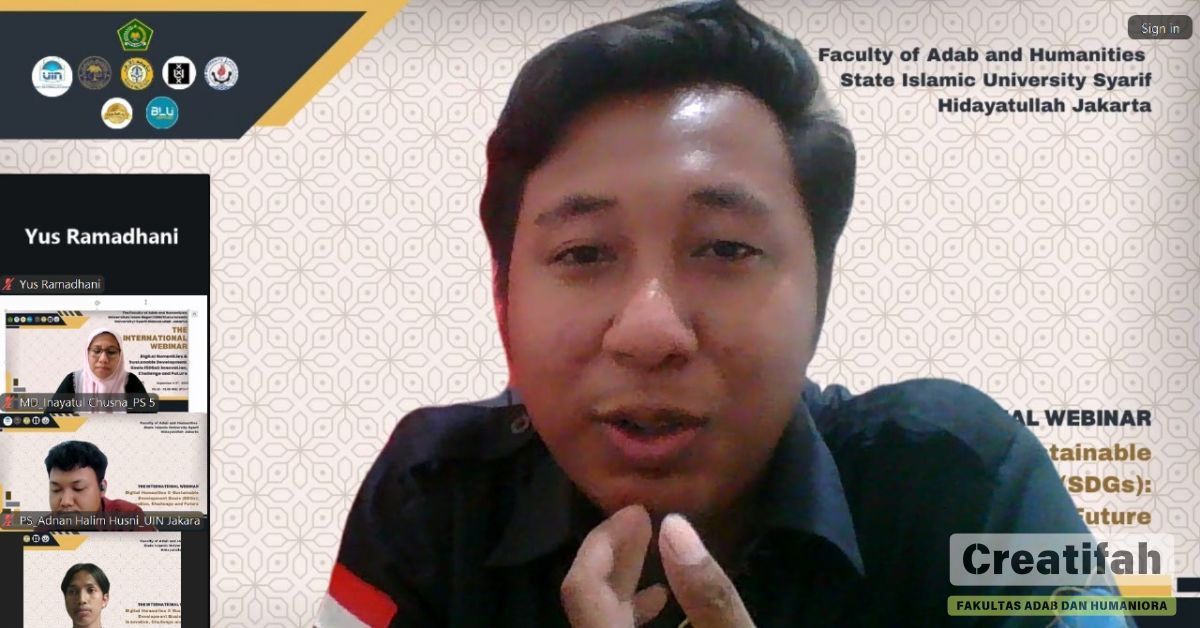Interpreting Egyptian Social Reality in Arabic Literature
Ciputat, FAH News online - Nama Jasmiko, a student at UIN Syarif Hidayatullah Jakarta, was one of the speakers who appeared at the International Conference on Digital Humanities: Innovation, Challenges and Future which was held by the Faculty of Adab and Humanities on 4-5 September 2025. On the second day of the seminar, he presented a paper entitled “The Representation of Social Inequality in the Short Story ‘Tabliyyah Min As-Sama’: A Sociological Literary Analysis by Lucien Goldmann.”
Together with a team consisting of Dr. Minatur Rokhim (BSA Head of Study Program), Fauziyah Hilwa, and Aslam Nurdin, Jasmiko highlighted the social inequality that hit post-colonial Egypt, as depicted in short stories by Egyptian writer Yusuf Idris. “This short story was written in the 1960s, when poverty and hunger spread. The main character, Shaykh Ali, is described as absurd because he only prays and worships, even though the people around him live in a poverty emergency, he explained.
According to Jasmiko, the core of her research was how prayer was the last hope of Egyptian society at that time. In fact, absurdity is what makes the audience even more interested. “For them, this short story is very interesting because prayer is described as the last reliable force,” he said.
Even though he felt there were not many challenges in writing because of Kaprodi's great support, he admitted that this experience was still special. “This is my first time writing proceedings. So, that's the main challenge for me,” he said with a smile.
Presentations at international forums made Jasmiko feel happiness. “I am very happy, especially if this paper is actually published by FAH,” he said. More than that, he learned an important lesson: courage. “I used to think international presentations were scary.” He added.
This research not only talks about literature, but is also relevant to global issues. Jasmiko emphasized that her research is closely related to the Sustainable Development Goals, especially on issues of poverty alleviation and quality education.
In the future, Jasmiko hopes that student research can be more mature and of higher quality. “Don't let there be fake research in the campus world,” he said firmly.
For other students who are still hesitant to try, Jasmiko gave an inspiring message: “Don't hesitate! Take a chance while you have it. If it's wrong, in one year people will forget. But if it works, it will be a big step for you.”
Documentation:


